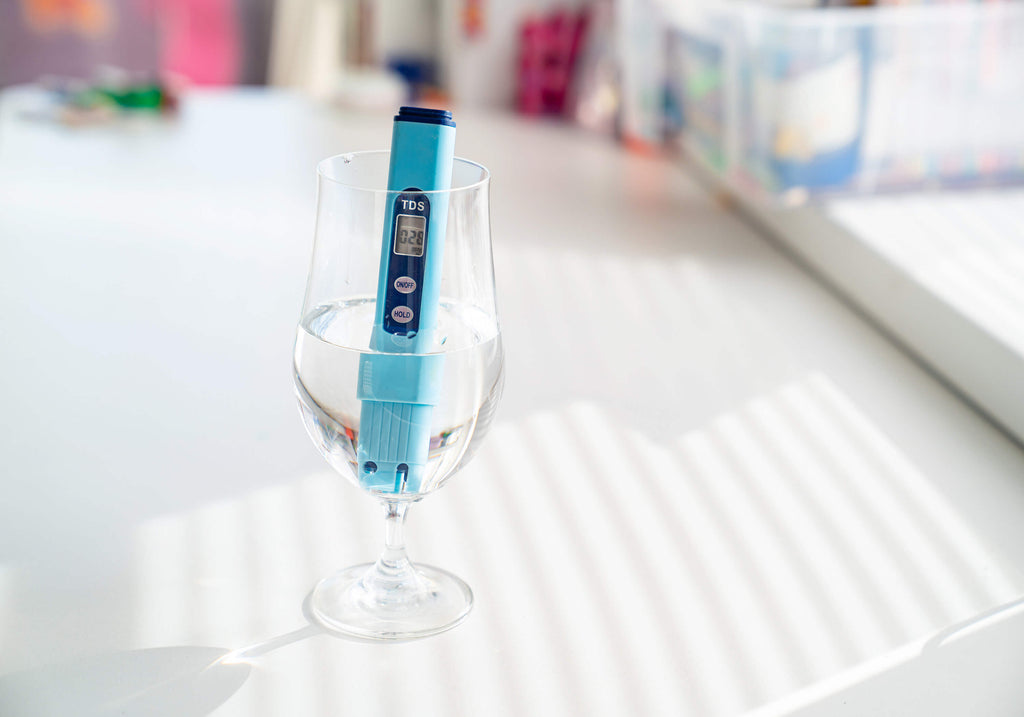Not known Facts About Well Water Testing
Table of ContentsAn Unbiased View of Well Water TestingIndicators on Well Water Testing You Should KnowThe Basic Principles Of Well Water Testing Not known Incorrect Statements About Well Water Testing

Federal government firms do not monitor or regulate water quality in private wells, and water testing is not required by any kind of government or state regulation. If you are among the 1. 7 million Georgians with a personal well, you are accountable for the quality and security of your well water.
Appropriately created and maintained water wells can supply many years of hassle-free solution. Surface pollutants may get in the well if it is not effectively constructed and preserved, and the well might ultimately deteriorate or come to be damaged as it gets older. Furthermore, some groundwater normally contains several chemical compounds at levels over the EPA's health-based standards, called the Maximum Contaminant Degrees (MCLs)
Evaluate the water once yearly for complete coliform bacteria, nitrates, total liquified solids and p, H degrees. If you believe other contaminants, you should examine for those too. On the other hand, the high quality of water in faulty wells may alter suddenly and continue to be undetected as the water may look, odor and taste the very same.
The Main Principles Of Well Water Testing
Minimum Screening Recommendations Well, Upkeep Annual All geographical areas Nitrates (Total Nitrate and Nitrate+Nitrite) Annual Yearly Fundamental Water Chemistry (see below) plus Alkalinity, Soluble Salts (or Complete Dissolved Solids), Nitrate, Chloride, Fluoride and Sulfate Initially and after that every 3 years p, H, Firmness, Light Weight Aluminum Calcium, Chromium, Copper, Iron, Magnesium, Manganese and Zinc Every year after initialcomprehensive water chemistry Added Examining Suggestions Verification of Possible Contamination A minimum of once and after that yearly follow-up for:1) residences with plumbing that pre dates the 1987 pipes codes with copper piping with lead solders2) older homes in which there are lead pipes3) residences with brass and/or chrome components (brass consists of 3-8% lead; chrome components has lead) All geographicalregions At least as soon as and afterwards an annual follow-up Southern Coastal Plain region listed below the "Loss Line" on the, Georgia map At the very least once and afterwards a yearly follow-up Piedmont-Blue Ridge areas above the "Fall Line" on the Georgia map Volatile and Semi-volatile Organic Compounds, Chemicals, Petroleum Hydrocarbons and Other Organics Not called for on a normal interval; suggested only when contamination is suspected. Well Water Testing.
Examples gathered from a kitchen faucet would certainly show the resource water residential or commercial properties plus any kind of potential contamination from the well owner's water system. Tasting at the wellhead for lead is not required, but sampling from the tap for lead would certainly show if lead solder was made use of in the pipes.

The primary MCLs have been established at concentrations that supply a large margin of security from harmful health and wellness impacts for most individuals over a life time of drinking. Although primary MCLs are enforceable requirements for PWSs only, private well proprietors may pick to follow these standards to shield themselves from the potential health danger of drinking polluted water.
Rumored Buzz on Well Water Testing
The drinking water requirement for nitrate is 10 ppm; over this level nitrate can have unfavorable effects on human health, especially infants under find out here now the age of 6 months. For added information the MDH has nitrate in drinking water sources online. You may likewise call the MDH at 800-383-9808. Chemicals are compounds made use of to avoid, ruin, drive away, or alleviate bugs.
Cyanazine breaks down in the environment right into various chemicals. A few of the failure items of cyanazine have actually been found in Minnesota water. Pesticide analysis in water samples can be pricey and the usage of particular chemicals can vary throughout the state making it challenging to know which pesticide to examine.
Based upon this, we advise that you call the MDA prior to tasting your well for chemicals. The cumulative or worsening health risk related to low levels of numerous pesticides in drinking water is not well recognized at this time. Well Water Testing. Generally, at find out this here risk populaces such as babies, youngsters, and pregnant/nursing women are at greatest threat
We are currently sampling wells for nitrate in municipalities with at risk groundwater and that have considerable row crop production for nitrate as part of the Town Testing Program (TTP). Even more than 70,000 personal wells owners will certainly be supplied nitrate testing in over 300 areas. Property owners are provided a chemical test with the Private Well Chemical Sampling (PWPS) Task if nitrate is spotted in their first town screening example.
The Ultimate Guide To Well Water Testing
The MDH recommends making use of a certified research laboratory to examine your water. To determine a research laboratory to have your well water tested, most likely to Minnesota Department of Health And Wellness (MDH) Qualified Ecological Laboratories. The tailored search tab on this web page allows you to browse for a research laboratory that accepts samples from personal home owners.
When feasible, it is best to remove sources of contamination or replace a polluted water system with a safer water instead of rely upon a home water treatment system. Additionally, the expense to test for chemicals in water might exceed their website the expense of a point-of-use home therapy system, such as reverse osmosis for drinking water.
If you make a decision to set up a home water treatment device, the unit (or systems) you choose should be accredited and labeled to minimize or get rid of the compound you are worried regarding. If there is greater than one substance you want removed from your water, you might require to incorporate several therapy processes right into one system.